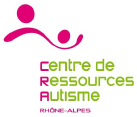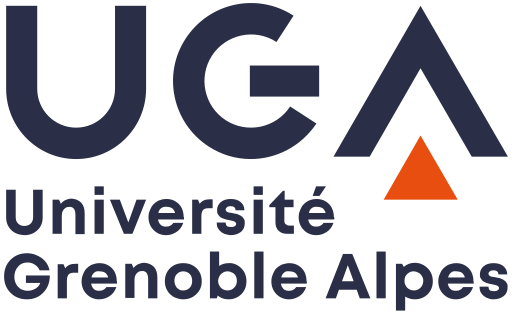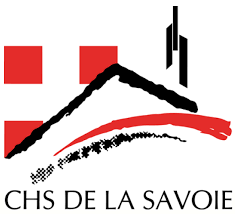Our understanding of autism spectrum disorders is evolving under the impetus of research in genetics, neuroscience, psychology and psychopathology. This research has radically altered our understanding of these disorders, but has also led us to rethink both diagnosis and support. A better understanding of the evolution of this knowledge should enable professionals to offer better "individualization" ofsupport for people with autism, not only during childhood but throughout their lives.
This degree is offered by theuniversité Savoie Mont Blanc (USMB) and the Université Grenoble Alpes (UGA).
Program produced and organized in collaboration with CESA (CHS de la Savoie).
For all inquiries, please fill in the form at the bottom of this page.
Download in PDF format :
- academics DU autism spectrum disorders PDF brochure
- Registration form PDF academics DU autism spectrum disorders
OBJECTIVES :
- To better understand the impact and importance of theevolution of knowledgein the diagnosis and care of children and adults with autism spectrum disorders.
- Use the tools and/or methods best suited to individualized support.
After a general presentation of current knowledge and recommendations, interactive workshops will cover differential diagnosis, different intervention methods and support at all ages.
TARGET SKILLS
- Identify the diagnostic criteria and classifications associated with ASD
- Recognizing and differentiating intervention models in the field of autism
- Participate in the development of support projects
- Be able to pass on up-to-date knowledge in your professional environment
- Describing the role of neuroscience and neurodevelopmental temporality
- Describe and differentiate the main factors and causes of autism
- Identifying the challenges of early detection
- Describe the main diagnostic tools
- Communicating and supporting diagnosis and support
- Targeting the objectives of an intervention and evaluating its effects
- Identify different intervention methods and levels of intervention
- Identify the adjustments to be made (school and work)
- Apply tools for managing behavior and developing social skills
- Reflecting critically on professional practice
ACADEMICS CONTENT
5 modules of 5 days (175h) from October to September
■ MODULE 1: October 7 to 11, 2024 (35h)
Common base of knowledge
In-depth study: "Autism and sensoriality".
■ MODULE 2: December 9 to 13, 2024 (5 days)
Assessment for support
In-depth: "In-depth knowledge and know-how concerning the main diagnostic tools".
■ MODULE 3: March 10 to 14, 2025 (5 days)
Coaching: intervention and remediation methods
■ MODULE 4: May 19 to 23, 2025 (5 days)
Autism in adulthood
In-depth training in social skills at all ages
■ MODULE 5: September 22 to 26, 2025
(5 days)
Course
■ FINAL EXAM (Grand Oral):
Evaluation QCM (30 min): November 17, 2025
Grand Oral Evaluation (30 min): December 8, 2025
Present a professional project developed during the year under the supervision of the teaching team and incorporating the contributions of the DIU.
Oral presentation: 20 min + questions from the jury (USMB or UGA and CHS): 10min
The presentation session (7 hours in total) is seen as an element of academics :
students attend presentations by other trainees.
PUBLICS :
Healthcare and educational staff with experience of working with people with autism: general practitioners or specialists, nurses, psychologists, psychomotor therapists, speech therapists, physiotherapists, occupational therapists, specialized educators, specialized teachers, school directors, etc.
ACADEMICS ' PLUSSES :
Program produced and organized in collaboration with CESA (CHS de la Savoie).
ADMISSION DEADLINES :
- Send application 15 days before academics begins.
VAPP GATEWAY :
- If you don't have the required diploma, you can enter the academics program via the Validation des Acquis Personnels et Professionnels (VAPP) program: vapp@univ-smb.fr. See our dedicated page.
HANDICAP ACCESSIBILITY :
■ MODULE 1:
> Welcome and introduction.
> Common base of knowledge :
- History of the concept, nosography, epidemiology
- The lifelong semiological approach
- The contribution of neuroscience and genetics to understanding autism
- Cognitive theories applied to autism spectrum disorder
- Sensory particularities: theoretical aspects
> Advanced :
- Sensory particularities: assessment and intervention options
- Pediatric eating disorders: food orality from childhood to adulthood
■ MODULE 2 :
> Assessment for support :
- Physiological markers of ASD (eye tracking, EEG, etc.)
- Early diagnosis and neuropediatric consultation
- Differential diagnoses and comorbidities: approach and illustrations in children
- Assessment for support and individualized projects: occupational therapy & psychomotricity
- Assessment to support individualized projects: language and communication
- Information on the Grand Oral (instructions, documentary research, initial ideas)
> Advanced
- The diagnostic process: from initial concern to diagnosis
- Developmental and cognitive assessment: approach and tools
- Diagnostic observation: approach and tools
- Exploring neurodevelopmental trajectories: approach and tools
■ MODULE 3 :
> Coaching: intervention and remediation methods :
- Drug treatments and ASD: indications and mechanisms
- Ethical support
- Intervention strategies: developmental approaches. Example: early intervention
- Intervention strategies: learning from the ABA method and its various variations
- Intervention strategies: functional analysis, managing challenging behaviors
- Intervention strategies: the educational approach
- Intervention strategies: alternative and/or augmented communication tools
- Intervention strategies: remediation (executive functions, social skills)
- Project follow-up and preparation for the oral presentation
> Project follow-up and preparation for the oral exam.
■ MODULE 4:
> Autism in adulthood :
- Towards the inclusion of adults with autism in the mainstream environment: posture, tools and practical application
- Differential diagnoses and comorbidities: examples in adults
- Assessment in adults: approach and tools
- Analysis of clinical vignettes
- Emotional and sexual life
- The autistic person in a mainstream environment: professional integration
- Neurobiology of intellectual disability
- Supporting autistic adults with intellectual disabilities
> Project follow-up and preparation for the grand oral
■ MODULE 5:
> Course :
- Somatic care for all ages
- Pain and ASD
- Tips and tricks: sharing tools, rights, procedures and network knowledge
- ASD and gender
- Schooling pathways: systems, principles and procedures for schooling at all ages
- The family journey: help for carers and respite - Testimonials and presentation of a scheme
- Testimonial: The journey of a concerned adult
- Vignettes cliniques de parcours: collaborative work on reported situations
> Project follow-up and preparation for the grand oral
■ EVALUATION :
- MCQs (30min)
- Oral defense: 30 min
The oral session (7h in total) is seen as an element of academics :
students attend presentations by other trainees.
RYTHM :
25 days, i.e. 5 modules of 5 days each
LOCATIONS :
UFR Lettres, Langues, Sciences Humaines (LLSH)
Université Savoie Mont Blanc
Jacob-Bellecombette University Campus
Route du Sergent Revel
Jacob-Bellecombette 73000 Chambéry
Center Hospitalier Spécialisé de la Savoie
89 Avenue de Bassens, 73000 Bassens
RATES :
DIU Complet (25 days, i.e. 5 modules) :
- Employer funding: €3,500
- Individual financing: Contact us using the form below
2024 PASS RATE: 100%.
SATISFACTION RATE 2024: 90
SURVEY RETURN RATE 2024: 33
DROP-OUT RATE 2024: 0%
EDUCATIONAL PROGRAM
- Carole BERGER
carole.berger@univ-smb.fr
Tel. 04 79 75 83 12 - Marine FIORENTINO
marine.fiorentino@univ-smb.fr
- Clément DONDÉ
Professor of Psychiatry UGA
REGISTRATIONS
- Laurence REDOUTEZ
laurence.redoutez@univ-smb.fr
Tel. 04 79 75 91 82
INFORMATION REQUEST academics Diplôme Universitaire Troubles du spectre de l'autisme : Accompagnement tout au long de la vie
Ask all your questions about the Diplôme Universitaire Troubles du spectre de l'autisme : Accompagnement tout au long de la vie.
INFORMATION REQUEST academics Diplôme Universitaire Troubles du spectre de l'autisme : Accompagnement tout au long de la vie
Ask all your questions about the Diplôme Universitaire Troubles du spectre de l'autisme : Accompagnement tout au long de la vie.


